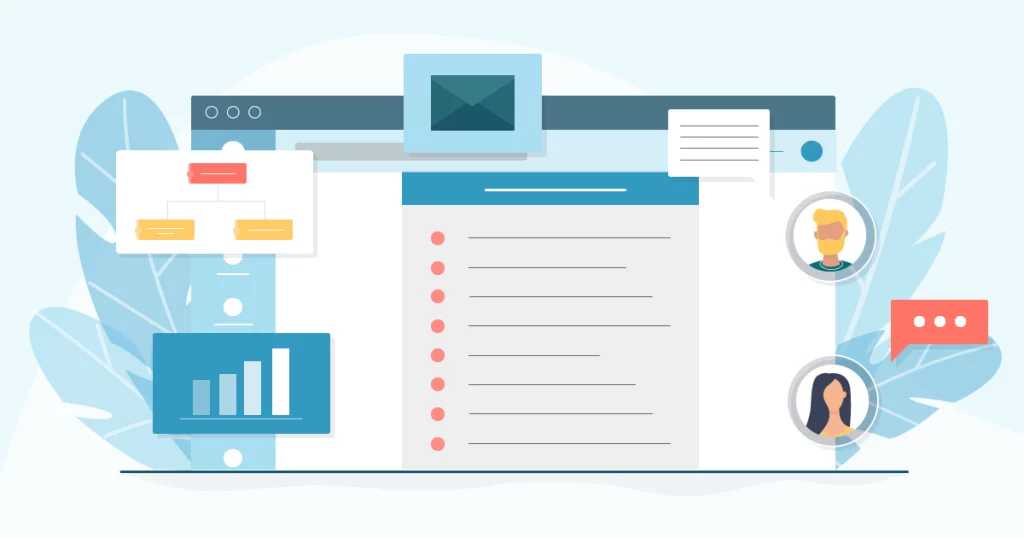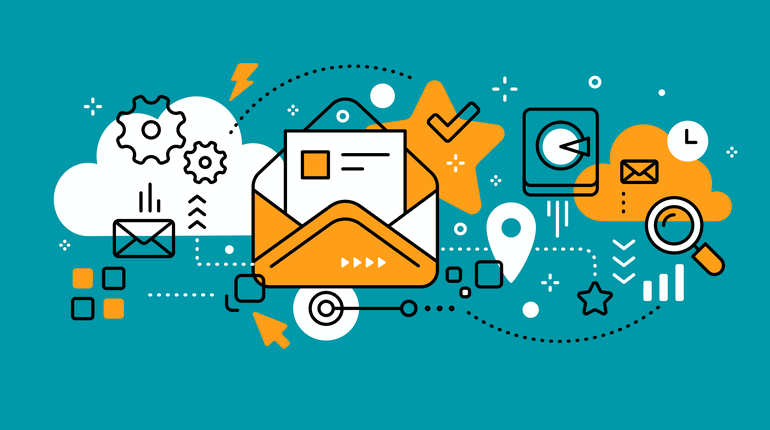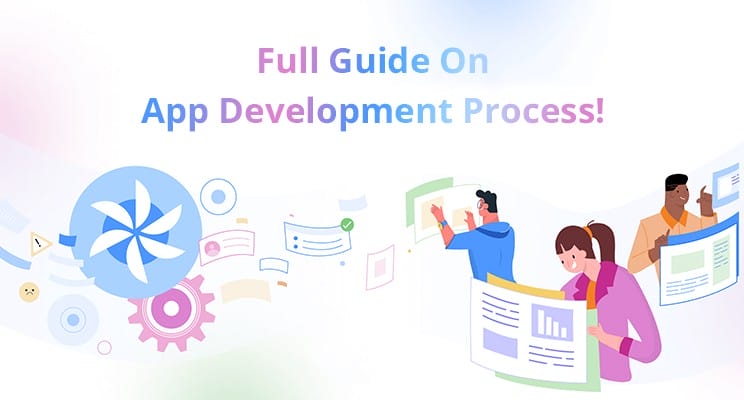Mastering the Art of Email Marketing 2024: Strategies for Success

In the dynamic world of digital marketing, where new platforms and trends emerge with dizzying speed, one constant remains: the power of email marketing. This timeless tool has proven its worth time and again, offering businesses a direct line to their audience’s inboxes. But harnessing this power requires more than just hitting ‘send’. It demands a strategic approach, a deep understanding of your audience, and the ability to evolve with changing technologies and preferences. In this comprehensive guide, we will explore the art and science of email marketing, providing you with the strategies you need for success.
Table of Contents
What is Email Marketing?
Email marketing, at its core, is a form of direct marketing that uses electronic mail as a means of communicating commercial or fundraising messages to an audience. However, to view it merely as a digital version of traditional mail flyers is to underestimate its potential. Email marketing allows for a level of personalization and engagement that other platforms struggle to match, enabling businesses to build relationships with their customers over time.
Far from being a one-size-fits-all solution, email marketing thrives on its flexibility. Whether you’re a small startup looking to make your mark or a large corporation aiming to maintain your position, email campaigns can be tailored to meet your specific goals. From promotional emails to newsletters, the possibilities are endless.
Yet, the true power of email marketing lies not just in sending messages but in creating conversations. It opens a two-way channel between businesses and customers, fostering a sense of community and loyalty that is invaluable in today’s competitive market.
Benefits of Email Marketing
The benefits of email marketing are manifold. Firstly, it offers unmatched return on investment (ROI). According to various studies, for every dollar spent on email marketing, businesses can expect an average return of $42. This staggering figure highlights the efficiency and effectiveness of email campaigns when executed correctly.
Moreover, email marketing allows for unparalleled targeting capabilities. Segmentation tools enable marketers to send tailored messages to specific groups within their audience, ensuring that the content is relevant and engaging. This personal touch not only increases the likelihood of conversion but also strengthens the customer relationship.
Another significant advantage is its measurability. With advanced analytics, businesses can track open rates, click-through rates, and conversions, providing valuable insights into customer behavior and campaign performance. This data-driven approach enables continuous optimization, ensuring that each campaign is more successful than the last.
Email Marketing Statistics
To truly appreciate the significance of email marketing in today’s business landscape, let’s consider some compelling statistics. Research indicates that over 4 billion people worldwide use email, a number expected to grow in the coming years. This vast audience presents a tremendous opportunity for businesses to expand their reach and influence.

Furthermore, studies show that consumers prefer email as a means of communication from brands, with a majority indicating that receiving promotional emails has influenced their purchasing decisions. This preference underscores the importance of email marketing in a comprehensive marketing strategy.
Additionally, the effectiveness of email marketing is not limited to any one industry. From retail to technology, companies across various sectors report significant benefits, including increased sales, improved customer retention, and enhanced brand awareness. These statistics serve as a testament to the versatility and power of email marketing.
Types of Email Marketing Campaigns
Delving deeper into the mechanics of email marketing, it’s essential to understand the different types of campaigns you can deploy. Promotional emails are among the most common, aimed at driving sales or actions through offers, discounts, or product highlights. These are direct and to the point, designed to grab the recipient’s attention and encourage immediate action.
Newsletters, on the other hand, focus on building and maintaining relationships with your audience. They provide valuable content, such as industry news, tips, or company updates, fostering a sense of community and keeping your brand top of mind.
Transactional emails, triggered by specific actions like purchases or account changes, are another vital component. Though primarily informational, they also offer an opportunity to engage customers further and promote other products or services.
Each of these campaign types serves a unique purpose, and a successful email marketing strategy often includes a mix, ensuring that you’re not only selling but also adding value and building relationships.
Building an Email List
The foundation of any effective email marketing campaign is a robust and engaged email list. But how does one go about building this list? First and foremost, it’s crucial to obtain consent. This not only complies with regulations like GDPR but also ensures that your messages are welcomed, increasing the likelihood of engagement.

Offering incentives, such as discounts or exclusive content, can encourage sign-ups, but it’s equally important to communicate the value your emails will bring. Whether it’s insider information, tips, or early access to products, make it clear what subscribers will gain from joining your list.
Maintaining list health is also paramount. Regularly cleaning your list to remove inactive or unengaged subscribers helps improve deliverability and engagement rates, ensuring your emails reach those genuinely interested in your content.
Creating Effective Email Marketing Campaigns
Crafting effective email marketing campaigns is both an art and a science. It begins with understanding your audience. Segmenting your list allows for more personalized and relevant content, increasing the impact of your messages.
The subject line is your first impression and can make or break your email’s success. It should be compelling and intriguing, prompting the recipient to open the email. The content itself must deliver on the promise of the subject line, providing value and engaging the reader.
Finally, a clear and compelling call-to-action (CTA) is essential. Whether you’re encouraging a purchase, sign-up, or another action, your CTA should be unmistakable and easy to follow, guiding the recipient through the desired next step.
Choosing the Right Email Marketing Software
Selecting the appropriate email marketing software is crucial for executing your campaigns effectively. The best email marketing software offers a balance of usability and functionality, allowing you to design, send, and track emails with ease.
Key features to look for include customizable templates, list segmentation capabilities, and comprehensive analytics. Automation tools are also invaluable, enabling you to trigger emails based on specific actions or schedule campaigns in advance.
Consider your business’s specific needs and budget when evaluating options. Many platforms offer scalable plans, allowing you to start small and expand as your email marketing efforts grow.
Best Email Marketing Platforms for Businesses
When it comes to the best email marketing platforms for businesses, several names stand out. Platforms like Mailchimp, Constant Contact, and SendinBlue are renowned for their user-friendly interfaces, robust feature sets, and reliable performance.
Each platform has its strengths. Mailchimp is celebrated for its comprehensive analytics and automation features, while Constant Contact shines with its extensive template library and social media integration. SendinBlue, on the other hand, offers exceptional transactional email capabilities and SMS marketing options.
Ultimately, the best platform for your business depends on your specific needs, including your list size, preferred features, and budget. Many platforms offer free trials, allowing you to test their services before committing.
Email Marketing Services for Businesses
For businesses looking to maximize their email marketing efforts, partnering with an email marketing service can be a game-changer. These services provide expert guidance and execution, from strategy development to campaign management.

Working with a service allows businesses to tap into specialized knowledge and advanced tools, ensuring campaigns are optimized for the best possible results. Services can also handle the time-consuming tasks of list management and content creation, freeing businesses to focus on other areas.
When selecting an email marketing service, consider their experience, portfolio, and the range of services offered. A reputable provider should be able to demonstrate a track record of success and offer customized solutions tailored to your business goals.
Email Marketing Best Practices
To achieve success with email marketing, it’s critical to adhere to best practices. This includes ensuring emails are mobile-friendly, as a significant portion of emails are now opened on mobile devices. Responsive design is essential to provide a positive experience for all recipients.
Personalization goes beyond addressing the recipient by name. It involves tailoring content to meet their interests and needs, based on their behavior and preferences. This level of personalization can significantly enhance engagement and conversion rates.
Finally, testing and optimization should be an ongoing process. A/B testing different elements of your emails, from subject lines to CTAs, can provide valuable insights and help refine your strategy for better performance.
Email Marketing Automation
Email marketing automation represents a significant advancement in the ability to engage customers effectively. Automation allows businesses to set up email sequences that are triggered by specific actions, such as signing up for a list or making a purchase, ensuring timely and relevant communication with minimal manual effort.
Beyond simple autoresponders, advanced automation workflows can guide customers through personalized journeys, nurturing leads, and encouraging repeat business. This not only enhances the customer experience but also increases efficiency and effectiveness.
Implementing automation requires a strategic approach, defining clear objectives and mapping out sequences that align with your sales funnel and customer lifecycle. With careful planning and execution, automation can transform your email marketing efforts.
Tracking and Analyzing Email Marketing Campaigns
The ability to track and analyze the performance of email marketing campaigns is invaluable. It provides insights into what works and what doesn’t, allowing for data-driven decisions that can improve results over time.
Key metrics to monitor include open rates, click-through rates, conversion rates, and unsubscribe rates. These metrics offer a snapshot of your campaign’s effectiveness and can help identify areas for improvement.
Advanced analytics can delve deeper, providing insights into subscriber behavior and preferences. This information can inform future campaigns, enabling more targeted and personalized content that resonates with your audience.
Integrating Email Marketing with Other Marketing Strategies
For maximum impact, email marketing should not operate in isolation but be integrated with other marketing strategies. This holistic approach ensures a consistent and cohesive brand experience across all touchpoints.
Social media, for example, can be used to grow your email list by promoting sign-up incentives. Conversely, email marketing can drive traffic to your social media channels, enhancing engagement and reach.
SEO and content marketing also play a critical role. By aligning your email content with your content marketing strategy, you can drive traffic to your website, supporting your SEO efforts and creating a seamless journey for your audience.
Conclusion
Mastering the art of email marketing is a journey, not a destination. It requires a strategic approach, a commitment to ongoing learning, and a willingness to adapt to changing technologies and customer preferences. By understanding the fundamentals, leveraging the right tools, and implementing best practices, businesses can unlock the full potential of email marketing, achieving remarkable success in their digital marketing efforts.
As we’ve explored, the keys to email marketing success include building a healthy email list, crafting compelling content, choosing the right platform, and continuously optimizing based on data-driven insights. By integrating email marketing with other strategies and embracing automation, businesses can create more engaging, effective, and efficient campaigns.
In the ever-evolving landscape of digital marketing, email remains a powerful and essential tool. By mastering the art of email marketing, businesses can connect with their audience in more meaningful ways, fostering loyalty and driving growth for years to come.
Remember, the journey to email marketing mastery is ongoing. Stay curious, stay adaptable, and never stop exploring new ways to engage and delight your audience.






